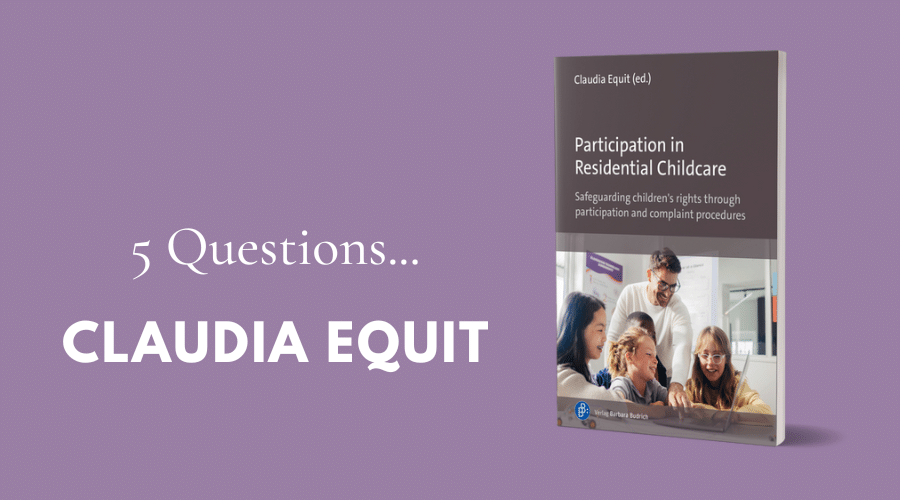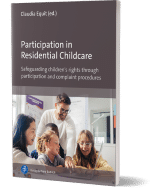We conducted an interview with Claudia Equit, editor of the volume “Participation in Residential Childcare. Safeguarding children’s rights through participation and complaint procedures”. We are asking about the main questions posed in this volume, how the idea for the volume came about and how children can be encouraged to participate.
Interview on “Participation in Residential Childcare. Safeguarding children´s rights through participation and complaint procedures“
Dear Claudia Equit, what questions are you and the other authors addressing in the publication Participation in Residential Childcare?
The study highlights important connections: how does the organization influence the implementation of participation rights for young people living in residential care groups? What role does relational social work have in that context? What are the requirements and limitations when implementing children´s rights for these vulnerable children and youth groups? What is the connection between victimizations that occur in the facilities on the one hand and complaints procedures in such facilities, which should give young people a voice to complain about grievances and deficiencies. What changes have occurred during the COVID-19 pandemic? What do care-experienced people think about the findings of the study?
What is the background of the publication, how did the idea for this volume come about?
The idea was to find out what conditions can help young people feel safe and comfortable when they are placed in residential care and what they think is important for them to get off to a good start and overcome previous experiences.
How can children be encouraged to participate? What are key drivers in residential childcare for them?
When young people have good and trusting relationships with professionals, when management facilitates a culture of participation in the living groups for young people as well as for staff members, and when professionals encourage young people to have a say in daily life and voice their concerns regarding their care and care decisions.
What are differences in the promotion of participation in residential childcare compared across countries?
There are very different child welfare systems and residential care, which is offered in several countries, provides different conditions for young people. There are also several groups of young people with different needs in residential care worldwide. In some regions, for example, residential care is provided in orphanages. In European countries such as Germany, unaccompanied young people who have immigrated for various reasons, as well as children and youth who have experienced abuse, neglect, and violence, are cared for in facilities. In Europe and countries such as Australia, Canada, and South Africa, we encounter similar obstacles to the implementation of children’s rights, especially the right to participation (e.g., lack of knowledge and skills of professionals to implement participation in everyday life, fear of professionals of losing their authority if they let young people participate in decisions in the residential group, or tokenistic participation by the management). However, there is a lack of research on orphanages in countries with ongoing crises such as war, natural disasters, etc. The study offers some insights into residential care under crisis conditions – we conducted interviews with staff and young people during the COVID-19 pandemic.
Why I am an author at Budrich
Budrich is an important and highly respected publisher. Its support for authors is very professional, and its scope to make publications appropriately visible in the professional discourse is excellent.
About Claudia Equit
I trained as a chemical laboratory technician and calculated natural gas quantities in a large company before studying at university. I enjoy research and have studied social work, rehabilitation, and school education as well as some important works by philosophers of education. I am interested in young people in child welfare and the professionals who work on their behalf. My focus is also on forms of violence and its concealment in child and youth care settings.
More interviews can be found on our blog.
Order “Participation in Residential Childcare” in our shop or download it for free as open access
Participation in Residential Childcare
Safeguarding children’s rights through participation and complaint procedures
edited by Claudia Equit


